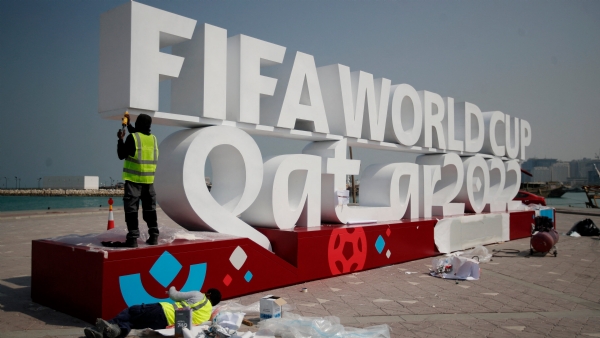Qatar World Cup ambassador says "homosexuality is haram, damage in the mind"
"They have to accept our rules here," former Qatari international Khalid Salman said. "(Homosexuality) is haram. You know what haram (forbidden) means? I am not a strict Muslim but why is it haram? Because it is damage in the mind.”
Total Views |
Amid the reports of human rights violations of LGBTQ+ and slave labour, the Qatar World Cup ambassador has told German television broadcaster ZDF that homosexuality was "damage in the mind". Notably, the country is preparing to host the global tournament in less than two weeks.

In an interview filmed in Doha and to be screened later on Tuesday, former Qatari international Khalid Salman addressed the issue of homosexuality, which is illegal in the conservative Muslim country. It is pertinent to mention there have been concerns being raised over th violation of rights of LGBT+ individuals.
The country expects more than one million visitors for the World Cup. "They have to accept our rules here," Salman said, in an excerpt of the interview. "(Homosexuality) is haram. You know what haram (forbidden) means?," he said. When asked why it was haram, Salman said, "I am not a strict Muslim but why is it haram? Because it is damage in the mind.”
The interview was then immediately stopped by an accompanying official. Qatar’s World Cup organisers, when contacted by Reuters, declined to comment.
Though organisers have repeatedly said everyone was welcome in Qatar during the World Cup, cases are emerging where LGBT+ individuals are being hunted down and tortured. FIFA is not coming forward and addressing this issue.
Qatar is the first Middle Eastern country to host the World Cup but the small nation has come under intense pressure in recent years for its treatment of foreign workers and restrictive social laws. The country’s human rights record has led to calls for teams and officials to boycott the 20 November-18 December tournament.
Recently, Qatar’s Foreign Minister, HE Sheikh Mohammed bin Abdulrahman Al Thani accused Germany of ‘double standards’ over the alleged human rights violations in Qatar. He also reminded the people that the European countries have no problem with Qatar when it comes to energy partnerships or investments.
LGBTQ+ rights aren’t the only problem with Qatar hosting the World Cup, there have been some concerns raised over the use of “slave labour” and poor working conditions in the Arab country. Thousands have reportedly died while working on the infrastructure for the World Cup due to poor working conditions.

